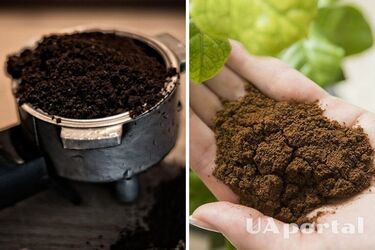Why you shouldn't throw away coffee grounds if you have a vegetable garden: tips from experienced gardeners

Who would have thought that ordinary coffee grounds could be a real treasure for your garden? Experienced gardeners have long been aware of its miraculous properties and actively use it as a fertilizer.
Coffee grounds are an affordable, eco-friendly, and effective way to improve soil, nourish plants, and protect them from pests. Try using it in your garden, and you will be pleasantly surprised by the results, Glavred writes.
Why is coffee grounds so useful for plants?
- Minerals and trace elements: Coffee grounds contain nitrogen, phosphorus, potassium, calcium, iron, copper and other nutrients that are essential for plant growth and development.
- Loosens the soil: Adding coffee grounds to the soil makes it looser and more airy, which improves the penetration of moisture and nutrients to the roots.
- Mulching: Dried coffee grounds can be used as a mulch to prevent moisture evaporation, soil crusting, and weed growth.
- Repels pests: Slugs, snails, ants, and other pests do not like the smell of coffee.
- It attracts earthworms: Earthworms love coffee grounds, and their presence in the soil indicates its fertility.
How to use coffee grounds in the garden?
- Fertilizer: Coffee grounds can be added to compost, used for watering, or scattered around plants.
- Mulching: Spread the dried coffee grounds in a 2-3 cm layer around the plants.
- Pest control: Sprinkle the coffee grounds around plants that are suffering from pests.
- Fertilizer for indoor plants: Add coffee grounds to the soil of indoor plants.
Important:
- Do not use fresh coffee grounds as they can burn the roots of plants. It should be dried beforehand.
- It is not recommended to use coffee grounds more than once a month.
If you want to get the latest news about the war and events in Ukraine, subscribe to our Telegram channel!
